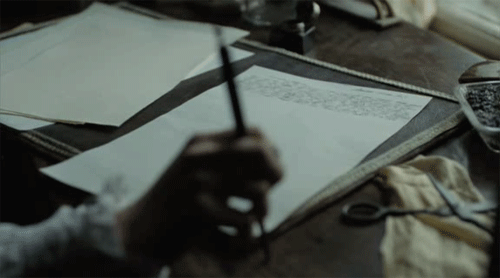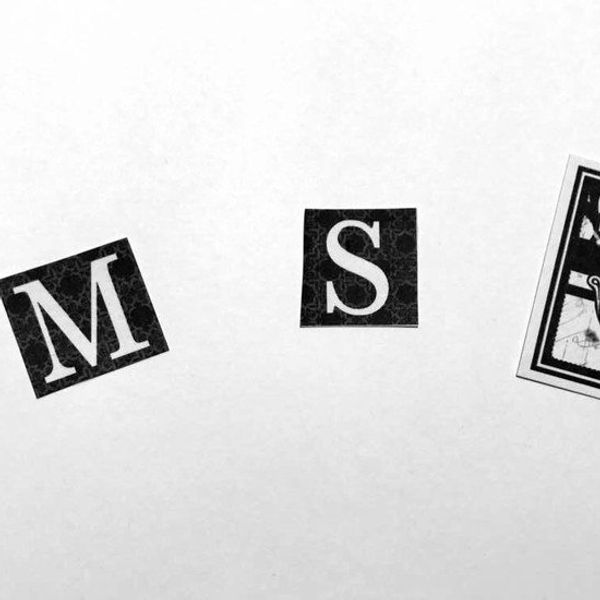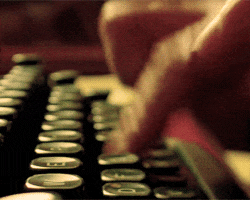When I started college, I was most looking forward to having the opportunity to enroll in creative writing classes. As someone who has been writing on her own time for many, many years, I couldn’t wait to finally have some guidance in craft and actually have an excuse for spending so much of my time creating stories.
I had no clue what I was doing when I enrolled in classes for the first semester of my freshman year, but I was determined to obtain a spot in an ‘Introduction to Creative Writing’ course. Luckily, I did, and taking that class jumpstarted my creative writing experience at the university level.
I’m currently enrolled in my fourth fiction writing workshop, and I notice myself growing not only as a writer, but as a person, too. As I reflect over my workshop experiences, I realize that the lessons I’ve learned in workshop have influenced me far beyond the pages of a story.
1. I've learned how to respond to criticism.
Giving and receiving criticism is one of the largest components of a
workshop. This is constructive criticism from peers, with the goal of improving
the stories to sharpen plot, characters, setting, and more so that they may
function to their full potential. For each workshop, we’re required to write up
critiques for peers’ stories. It wasn’t until my current workshop that I felt
brave enough to read the written critiques of my work from each of my
classmates. This is a major win, for I’ve realized that criticism can only make
my writing stronger.
2. I've gained confidence.
Sharing my
creative fiction with others has boosted my confidence in my abilities.
Obviously, I have no choice but to share my work, or else I’d automatically
fail my class. Yet I want to share my work. I’m satisfied to
finish a piece that I put my whole heart into, share it with my class, and
accept their constructive comments that will only make it better. Workshop
encourages me to take risks and benefit from them.
3. I write outside of my comfort zone.
In my
first workshop, I sought comfort in writing stories with blatant moral lessons
and tidy, happy endings wrapped up in a neat little bow. I was naive at the
start, and I didn’t realize why some of my classmates chose to write about
deeper, darker topics and forgo the happy ending. Now, with more writing
experience and life experience, I know it’s because life is messy. It isn’t
perfect. It doesn’t always come with a happy ending. Breaking out of my comfort
zone of writing allowed me to explore different themes, greater storylines, and
complicated, realistic characters. This kind of writing evokes emotion. This
kind of writing shows growth in the author. Not to say a happy ending doesn’t
make for good writing (I’m the biggest sucker for a happy ending), but writers
must do what’s best for the story - happy ending or not.
4. Revision is key.
In my very
first workshop, I didn’t believe in revision. I know, that’s basically a sin in
the creative writing world. I was too stubborn to revise my work - I liked it
just the way it was. However, I’ve learned that revision signifies growth in a
writer. It’s important to revisit your work from time to time and see what more
you can bring to the table with the life experience you gain. Revision
strengthens a story. Revision also means you’re never really done writing a
piece, but it’s an opportunity to continue crafting a piece so that it has the
greatest effect possible on a reader.
5. I've found my passion.
This
semester especially, I’ve noticed that all I want to focus on is my writing for
workshop. I want to craft a new piece or revise an old one. I want to focus
solely on my workshop, instead of my four other classes (I wish I could!). I am
most motivated, most inspired, and most authentically me when I’m bringing new
characters to life, researching an unfamiliar setting, crafting a unique plot.
I crave that feeling. I want to be that passionate about every aspect of my
life, and I can be through that inspiration I gain from the written word.
Going into college, I couldn’t imagine what an impact a simple course could have on my talents and my life. I’ve found that I can apply these lessons to my life outside of the classroom or the stories I create, using it not only to better my writing, but to better myself.






















